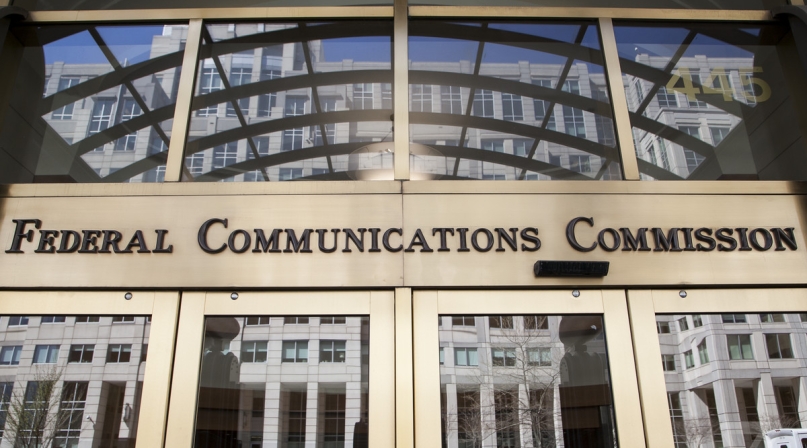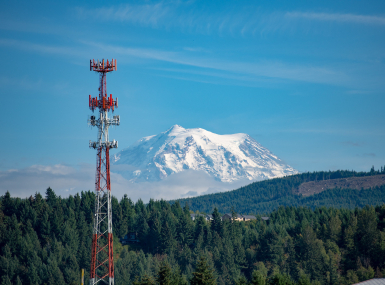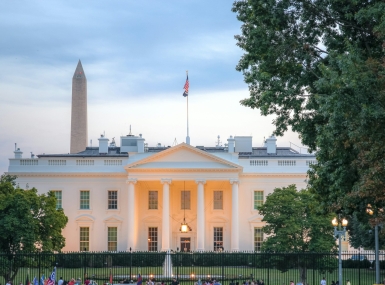FCC votes to exempt 5G deployment from federal historic, environmental reviews

FCC exempts telecom companies from federal historical and environmental reviews for siting 5G small cells , which are "inherently different from large towers”
As anticipated, the Federal Communication Commission voted Thursday, March 22 to exempt telecom companies from federal historical and environmental reviews and accompanying fees in the name of streamlining the review process for the “small cell” 5-G network.
“Specifically, we clarify today that small cells are inherently different from large towers,” FCC Chairman Ajit Pai said. “So they shouldn’t face identical regulatory review under the National Historic Preservation Act and National Environmental Policy Act.”
“Aside from deterring deployment, upfront fees contradict Advisory Council on Historic Preservation guidance,” Pai said. “Because these fees are inconsistent with both law and consumer welfare, we will not coerce private entities into paying them going forward.”
The FCC’s Intergovernmental Advisory Committee weighed in, stating that it “strongly recommends against preemption or other limits of local control over wireless infrastructure siting decisions. Past practice, as well as the evidence in this record, suggests that preemption is unnecessary, will produce unintended consequences and fundamentally runs afoul of the careful balance struck by Congress between federal and local authority.
“The current process for siting wireless infrastructure is not fundamentally broken,” the group said.
The IAC includes Baltimore Mayor Catherine Pugh, Montgomery County, Md. Councilmember Hans Riemer and Kenneth Fellman, county attorney for Yuma County, Colo.
“While I support the deployment of next-generation wireless infrastructure, I am concerned that the actions taken today by the FCC undermine the protections for local communities, particularly tribal governments, in the National Historic Preservation Act (NHPA) and the National Environmental Policy Act (NEPA), Riemer said. "Regrettably, this order is another example of this FCC putting the interests of large corporations over those of state, local, and tribal governments and the people they represent.”
“I think it’s unfortunate they did that,” said Fellman. “By eliminating these regulations under the guise of ‘this will allow more investment in 5G,’ I mean, I don’t really see it.”
“My thought is, if the FCC is going to give the industry a pass on any kind of regulations whether it’s historic preservation or environmental or local right of way control, there ought to be a quid pro quo,” he said. “There ought to be some kind of requirement that says ‘If you can demonstrate you’re investing 25 percent more in capital dollars in building these networks in rural America this year than you were last year, then you can take advantage of these rules that limit the kind of regulations you have to deal with. If you can’t demonstrate that, you don’t get that. There needs to be some kind of guarantee other than the industry saying, ‘Oh, if we get these breaks, we’ll deploy more.’ There has to be some kind of mandate for that. And we don’t see that from this Commission.”
The FCC claims doing away with the reviews will save $1.6 billion in “regulatory red tape,” will free up capital for 55,000 new cell sites and create 17,000 new jobs.
The vote by the five FCC commissioners split along party lines, with Republican members Pai and Commissioners Michael O’Rielly and Brendan Carr approving and Democrat Commissioners Mignon Clyburn and Jessica Rosenworcel dissenting.
Clyburn said on Twitter: “Winning the 5G race does not have to come at the expense of local communities, Tribal Nations, historic sites and the environment. Best course would have been to delay today’s vote. They refused so I must, of course, dissent.”
In advance of Thursday’s vote, Reps. Frank Pallone (D-N.J.), Anna Eshoo (D-Calif.) and Raul Ruiz (D-Calif.) wrote in a letter to Commissioner Carr, who was spearheading the effort: “The proposed order claims these small wireless facilities are the size of a pizza box, but the wireless industry notes that hundreds of thousands of these sites will need to be deployed to meet consumer demand for new 5G networks. If the FCC were to carve out small wireless facilities from NHPA, the Commission could be subjecting culturally significant sites to death by hundreds of thousands of small-cell cuts.”
The members also said in their letter that the FCC, under Chairman Pai, acts "always at the behest of industry again and again at the expense of consumers, localities, and otherwise marginalized and disenfranchised communities who are in the most need of their government to look out for them.”
Thursday’s action at the FCC “speeds wireless infrastructure deployment by eliminating the requirement that applicants file Environmental Assessments solely due to the location of a proposed facility in a floodplain, as long as certain conditions are met,” the agency said in a statement after the vote. “Here too, we’re reducing unnecessary barriers to the construction of next-generation networks.”
The FCC order focuses on ensuring the Commission’s rules “properly address the differences between large and small wireless facilities,” and clarifies the treatment of small cell deployments, the agency said. Specifically, the Order:
- Excludes small wireless facilities deployed on non-Tribal lands from National Historic Preservation Act (NHPA) and National Environmental Policy Act (NEPA) review, concluding that these facilities are not “undertakings” or “major federal actions.” Small wireless facilities deployments continue to be subject to currently applicable state and local government approval requirements.
- Clarifies and makes improvements to the process for Tribal participation in Section 106 historic preservation reviews for large wireless facilities where NHPA/NEPA review is still required.
- Removes the requirement that applicants file Environmental Assessments solely due to the location of a proposed facility in a floodplain, as long as certain conditions are met.
- Establishes timeframes for the Commission to act on Environmental Assessments.
Attachments
Related News

House committee passes local broadband permitting preemption bills
The American Broadband Deployment Act of 2025 would enact new restrictions on a variety of state and local land use and zoning authorities pertaining to the deployment of telecommunications infrastructure.

White House signs Executive Order on state AI lawmaking
President Trump signed an Executive Order (EO) aimed at mobilizing federal agencies to challenge existing state laws on artificial intelligence.

